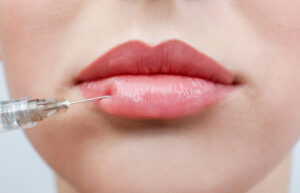Almost everyone experiences some sort of skin irritation, redness, peeling, and burning on their skin in their lives. Unfortunately, it often happens for some people and is extremely difficult to deal with. They call it sensitive skin. But the chances are they might be suffering from a condition known as sensitized skin. Confused between the two terms? Read on to understand the difference.
How to Identify Sensitive Skin or Sensitized Skin?
Sensitive skin is a type of skin, while sensitized skin is a condition that can affect anyone. Sensitive skin is more prone to redness and irritation, and it’s challenging to find products that don’t inflame the skin. In addition, sensitive or sensitized skin is often caused by harsh skincare products, whereas sensitized skin can also be caused by environmental factors such as pollution or weather changes.
What is Sensitive Skin?
Sensitive skin is a condition where the skin feels more vulnerable to external irritants and allergens. As a result, the skin may feel dry, tight, or itchy. It can also be more prone to rashes, redness, and breakouts. Genetic factors and environmental elements often cause sensitive skin.
What is Sensitized Skin?
Sensitized skin is a condition in which the skin becomes more sensitive to external stimuli, such as allergens, irritants, and other environmental factors. As a result, the skin barrier, which protects the body from these external agents, is weakened in sensitized skin. This can lead to redness, skin sensitivity, itching, flaking, and eczema. Rosacea and other forms of dermatitis are also common in people with sensitized skin.
Many factors can contribute to sensitized skin. For example, skincare products’ overuse of harsh chemicals or sulfates can irritate the skin and cause a breakout. Dryness can also lead to sensitization, as the skin becomes more vulnerable to external stimuli when it is not adequately hydrated.
Ingredients That Sensitize Skin
Several ingredients can sensitize the skin, including alcohol, artificial fragrances, certain essential oils, and other harsh chemicals. When these ingredients are used in products that come into contact with the skin, they can cause irritation, redness, and inflammation. In addition, they can even lead to more serious reactions like hives or blisters.
Difference Between Dry Skin and Sensitive Skin
There is a tremendous difference between dry skin and sensitive skin. People with sensitive skin are more prone to allergies, and their skin is more easily irritated. Dry skin can be caused by environmental factors, such as wind and cold weather, which strip your skin of its natural oils. This can lead to itching and flaking. Sensitive skin is more delicate and can be easily inflamed. The skin barrier is weaker, making it more susceptible to irritation. Skin irritation can cause redness, swelling, and itchiness. If you have sensitive skin, you should stay away from any potential allergens and take extra care to protect your skin from the environment.
Symptoms of Sensitive skin
Sensitive skin gets easily irritated. It may feel itchy, tight, or even burning. It can also be red and inflamed. Allergens, like dust or pollen, can trigger a reaction. So can certain fabrics, detergents, or soaps. People with sensitive skin may also have eczema or rosacea.
Common Triggers of Sensitive Skin
There are many different triggers of sensitive skin; unfortunately, they vary from person to person. For example, for some people, eczema may be a trigger, while for others, it could be something as simple as using a new soap or laundry detergent. Even changes in the weather can cause sensitive skin to flare up. If you’re unsure of your triggers, it’s best to see a dermatologist for help.
How to Deal with Sensitive and Sensitized Skin
If you have sensitive or sensitized skin, there are a few things you can do to help treat it. First, use a gentle cleanser that won’t irritate your skin. Second, ensure you keep your skin’s lipid barrier intact to help prevent irritation. And finally, avoid using products known to cause sensitivity or sensitization. If you do all of these things, you’ll be much less likely to experience redness, irritation, and other symptoms associated with sensitive or sensitized skin.
*Information in this article is not medical advice and may not be factually accurate. It is intended for entertainment purposes only. Consult with a physician before attempting any tips in this blog post and to get the most up to date factual data about any procedure or treatment.














